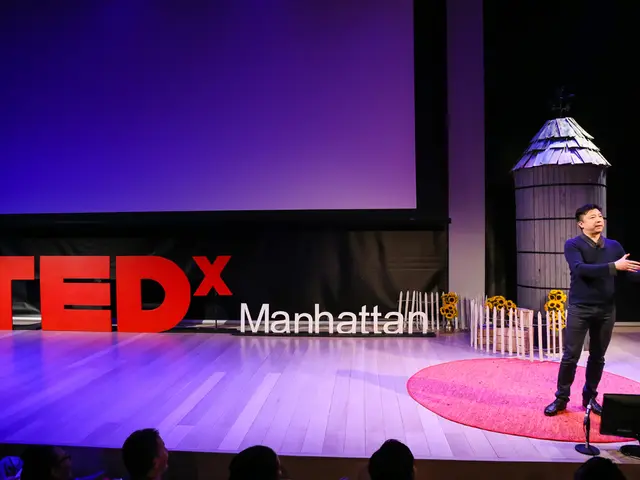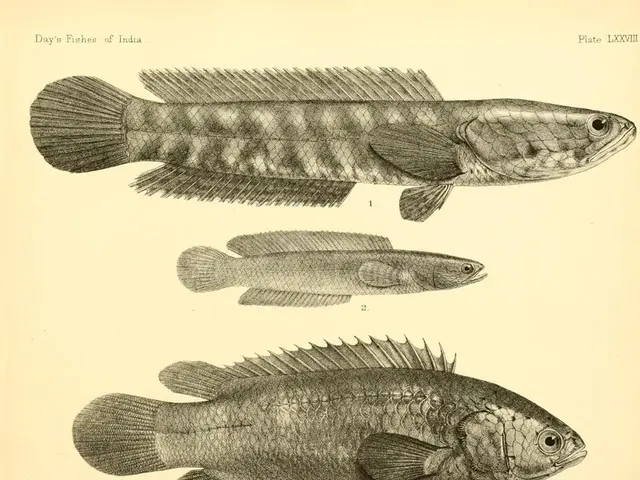Leaving India: A Bitter Exodus After the Pahalgam Terror Attack
Tensions at Attari Border: Increased Travelers as Pakistani Nationals Rush Back Following Visa Suspension
India's Decision: In response to the horrific terror attack in Pahalgam, Jammu and Kashmir that left 26 innocent lives in ruin, the Indian government has taken a firm stand by suspending visa services for Pakistani nationals residing in India. This decision was effective until Sunday, setting the final departure date for these individuals on or before April 30th.
Long Lines at the Border: The Attari-Wagah border in Amritsar has become a bustling hub as Pakistani nationals line up for passage back to their homeland. With the Border Security Force (BSF) meticulously processing each individual, the queue of vehicles extends for miles. Many of these individuals are filled with melancholy, as they bid an unexpected farewell to memories they've made across the border.
One Pakistani woman, who had been visiting Jodhpur, shared tearfully, "I was here for a month. I got married in Pakistan 15 years ago. It feels strange to leave like this."
Unfortunate Circumstances: Another emotional Pakistani national stated, "Yes, we heard about the attack initially, and of course, all this is happening because of that. It's unfortunate we have to leave for such a reason. It's hard to believe that we're really going back. Such incidents should not happen. Both governments should take precautions so innocent people like us aren't affected."
Family Ties: Many Pakistani nationals find themselves caught in the crossfire of political and security tensions, like a man who had come to India to meet his sons. Speaking of the Pahalgam incident, he commented, "What happened in Pahalgam was very wrong."
A Plea for Family Reunions: An Indian tourist, who had travelled to Delhi to visit his in-laws, voiced a poignant concern, "I got a visa for 45 days. My wife is Indian, and she can't go there. We need a solution that allows families like ours to meet. What happened in Pahalgam is terrible; those responsible must be punished strictly."
Emotional Family Reunions: One woman, who had travelled to India for a rare family reunion, expressed her distress, "I came here to meet my sisters after 12-13 years, along with my husband and sister-in-law. What happened in Pahalgam is very wrong, and strict punishment should be given. PM Modi's decision is understandable, but it hurts to leave so soon."
Human Impact: The situation at the Attari-Wagah border has turned into a bittersweet goodbye for numerous families. Reports of families being separated due to this sudden tide of immigration have caused emotional distress, particularly among children holding Pakistani passports who are forced to leave India while their mothers, holding Indian passports, have to remain behind. The temporary border closure has also impacted trade and the popular border ceremony, a tourist attraction that both countries have cherished.
[1] India suspends visa services for Pakistani nationals[2] Executive order issued by the Indian Government[3] Separated Families Plead for Reunification[4] Attari-Wagah border closure details[5] Impact of border closure on trade & tourism
Following the Pahalgam terror attack in Jammu and Kashmir, India suspended visa services for Pakistani nationals and issued a directive for all Pakistani visa-holders to leave India by a specified deadline, around April 27, 2025. This directive led to a significant movement of Pakistani nationals preparing to exit India through the Attari-Wagah border, the primary land crossing between the two countries.
As a direct consequence, hundreds of Pakistani nationals, including families and nine diplomats and officials, have been leaving India via the Attari-Wagah land border. The border crossing has been closed temporarily to ordinary traffic, impacting both movement of people and trade. The closure also halted the popular border ceremony, a tourist attraction popular on both sides.
The situation has had a profound human impact, with reports of families being separated in the process. Children holding Pakistani passports have been forced to leave India, while their mothers holding Indian passports have had to stay behind, causing emotional distress. Children like Zainab and Ali have publicly expressed heartbreak and pleaded for reunification with their family members.
Overall, the current situation at the Attari-Wagah border is marked by hurried departures of Pakistani nationals from India, border closure for regular traffic, emotional family separations, and increased bilateral tensions following the terror attack and subsequent visa suspensions.
- Pakistani nationals, including children like Zainab and Ali, are filling the long lines at the Attari-Wagah border, awaiting passage back to their homeland due to India's suspension of visa services in the wake of the Pahalgam terror attack.
- In an effort to take precautions after the attack, the Indian government is implementing strict measures, such as the suspension of visa services for Pakistani nationals and the temporary closure of the Attari-Wagah border, which has impacted general news, trade, travel, and the popular border ceremony.
- The sudden return of Pakistani nationals, forced by the BSF-aided borders, has led to a significant human impact, with many families finding themselves in a situation of separation, uncertain of when they will be able to return to their lifestyles across the border.
- As political and security tensions continue to rise, ordinary citizens are the ones paying the cost, with their daily lives disrupted and their families torn apart by the war-and-conflicts and the decisions taken by the governments involved.
- The acts of crime-and-justice, such as the Pahalgam terror attack, have pushed the two nations further apart, with the repercussions felt not just by diplomats and officials, but by ordinary citizens relying on proxy relations and shared families to navigate their lives.








